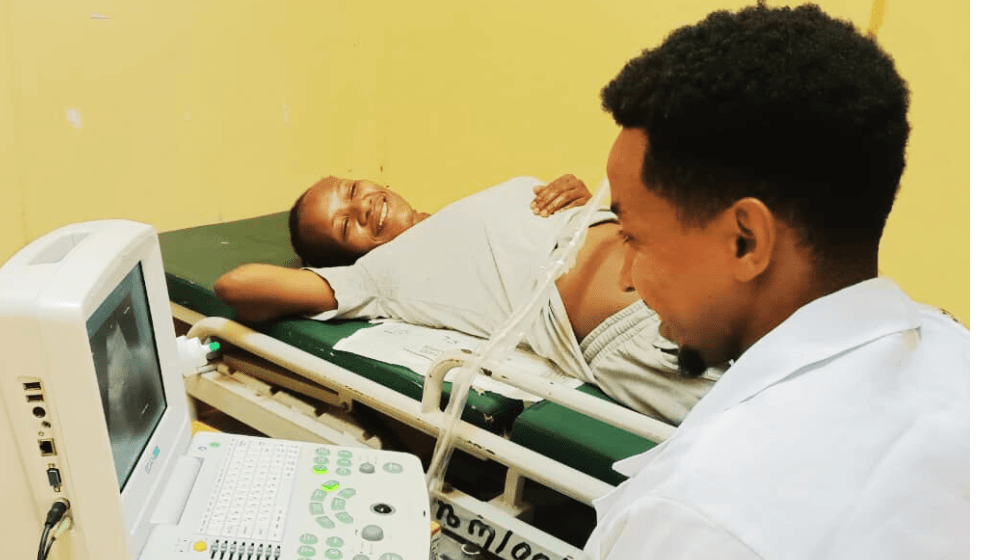Dilla City Administration, ETHIOPIA: Twenty-four year-old Emebet Zeleke is attending her first antenatal care visit at the Harroressa Health Center in Dilla town. She is a mother of one child and is currently four months pregnant. This is one of the interventions supported by UNFPA as part of an integrated programme on family planning and sexual and reproductive health.
“I am now able to know my gestational age, my date of delivery, and general condition of my baby. The doctor told me that there is no complications. I felt very happy when I saw the movement of my baby on the ultrasound screen,” said Emebet.
She added that during her previous pregnancy she wasn't able to access ultrasound imaging because she was supposed to pay up to 300 Birr at private clinics which was not affordable to her.
Strengthening the capacity of health facilities and health care providers
UNFPA is strengthening the capacity of health facilities and health care providers for better maternal health outcomes as part of the five-year Integrated Family Planning and Sexual Reproductive Health Programme funded by the Korea International Cooperation Agency (KOICA). The programme is being implemented in six selected districts in the West Guji and Gedeo Zones of the Oromia and Southern Nations, Nationalities and Peoples Regions, respectively. The programme has been strengthening the efforts of the government in increasing access and availability of SRH and GBV prevention and response services primarily targeting adolescents and youth.
The programme targets 150 thousand unmarried and married adolescents and youth. It has so far supported the training of more than 500 service providers on the provision of quality and comprehensive SRHR and GBV response information and services with respect and compassion.
Appreciating the support provided by the programme, Mr. Wosen Woldemariam, Head of the Haroressa Health Center, said that strengthening the capacity of service providers and availing essential equipment and supplies is contributing to accessibility of quality integrated SRHR and GBV response services. The provision of essential equipment such as ultrasound machines is facilitating Emergency Obstetric and New-born Care and lifesaving SRH services at the health facilities.
Training was provided to health care providers on family planning insertion and removal, post-abortion care, psychosocial support and adolescent and youth reproductive health minimum package as well as the use of medical equipment.
Essayas Fikadu, a health professional at the Haroressa Health Center, said that he was able to image and check pregnancies with the support of the ultrasound availed to the health facility which he says is very vital for the early detection of complications that can contribute to a positive pregnancy and delivery outcomes. “Previously we were referring mothers for ultrasound services to private clinics and most of them decline because of the costs,” he noted.
Making the services adolescent and youth friendly
Emebet appreciates the support provided at the health center which is enabling young mothers like her to access comprehensive maternal health services in a friendly manner free of charge.
Adolescent and youth are now accessing sexual and reproductive health services at the youth friendly service corners established in the intervention health facilities which has been encouraging young people to access the services.
The women and girls’ friendly space constructed in the health facilities is also enabling women and young girls to have space to discuss their issues. Moreover, the programme is supporting efforts to reach vulnerable young people such as street children and disabled youth through organizing integrated SRH and GBV service outreach.


